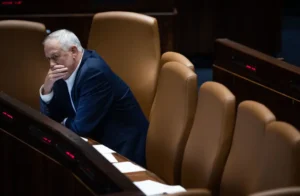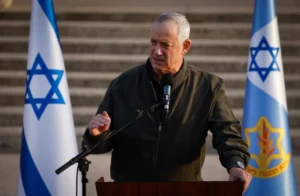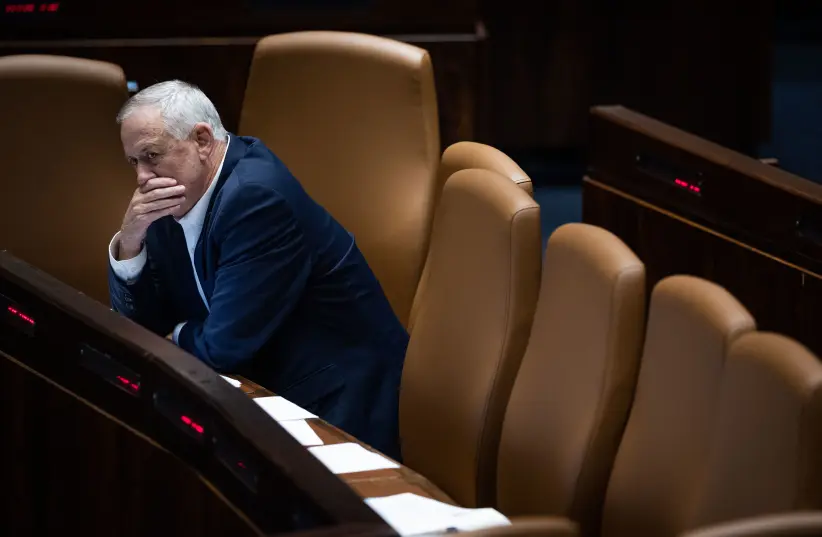The legal adviser for the Defense Ministry would need to specify why Gantz views appointing a new IDF chief of staff as necessary.

Attorney-General Gali Baharav-Miara on Wednesday announced that she would need more details from the Defense Ministry legal adviser before deciding whether Defense Minister Benny Gantz can appoint a new IDF chief of staff with elections on the horizon.
Baharav-Miara said that on one hand, appointments during election season were discouraged.
On the other hand, she said that appointments were not banned across-the-board and there could be exceptions which met a standard of the state having a necessity.
The attorney-general said that the legal adviser for the Defense Ministry would need to specify why Gantz views appointing a new IDF chief of staff as necessary.
In addition, the issue could be influenced by whether Gantz is able to make the appointment before the current government formally disperses, or only after election season formally starts – which may not be until next week.

Gantz’s comments
On Monday, Gantz told the Knesset Foreign Affairs and Defense Committee that he would move aggressively forward soon to appoint a new IDF chief to avoid the process being held hostage by politics.
Gantz said, “We have a great IDF chief of staff… but he is finishing in six months. To maintain stability, we need to appoint a new IDF chief of staff,” soon as well as to allow that new chief of staff to promptly select his own new IDF deputy chief of staff.
“We have a great IDF chief of staff… but he is finishing in six months. To maintain stability, we need to appoint a new IDF chief of staff.”
Defense Minister Benny Gantz
“There are great and professional candidates for the IDF chief of staff position, and I am consulting with the prime minister,” about the appointment.
The defense minister said that, “Any attempt to color the decision as political is false and harms the basis of our power. I call on all rivals to leave the IDF outside of the fires of politics.”
He said the IDF would not be in a position where it had to have a “temporary acting chief of staff. I will not let happen to the IDF like what happened to the police for two years” where the politicians could not agree on a new permanent chief and a weaker acting chief ran things on a temporary basis.
The three lead candidates are current IDF deputy chief of staff Maj.-Gen. Hersti Halevi, former IDF deputy chief of staff Maj.-Gen. Eyal Zamir and former IDF Northern Commander Maj.-Gen. Yoel Strick.
Gantz started the process last week, but these were his most comprehensive comments on the issue to date.
Reportedly Halevi is the lead candidate, but some on the Right prefer Zamir, who was helped to move up the chain of command by Netanyahu when he was still prime minister and who had worked for him as his personal military secretary.
With new elections potentially on the horizon, Gantz knew he might run into some legal obstacles to get the appointment through during a transitional government.
However, by starting the process before elections start, he hoped to strengthen his argument that allowing the appointment to go through is just government business as usual, not election period politicking.
He has also responded to political accusations, noting that he has already interviewed Halevi and Zamir and plans to interview Strick shortly.
Traditionally, election season appointments are discouraged so as to avoid politicization, real or perceived.
On Wednesday, Gantz responded to criticism by saying that he was not trying to race against time to make an inappropriate appointment. Rather, he said his appointment process was proper and comprehensive and was a “vital strategic, security and organizational interest of the highest level.”
He also said he would consult with Benjamin Netanyahu about the appointment before making a decision.

